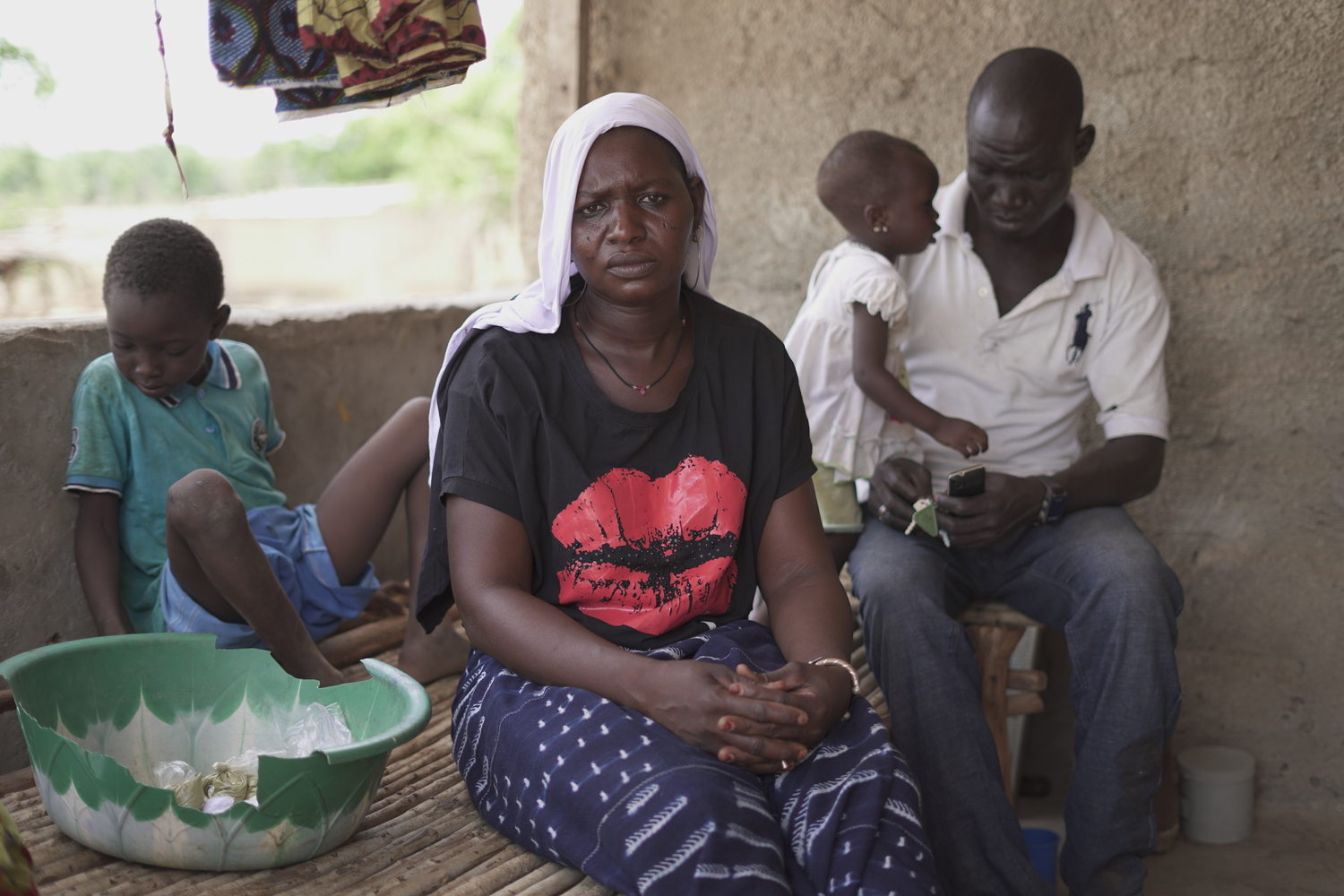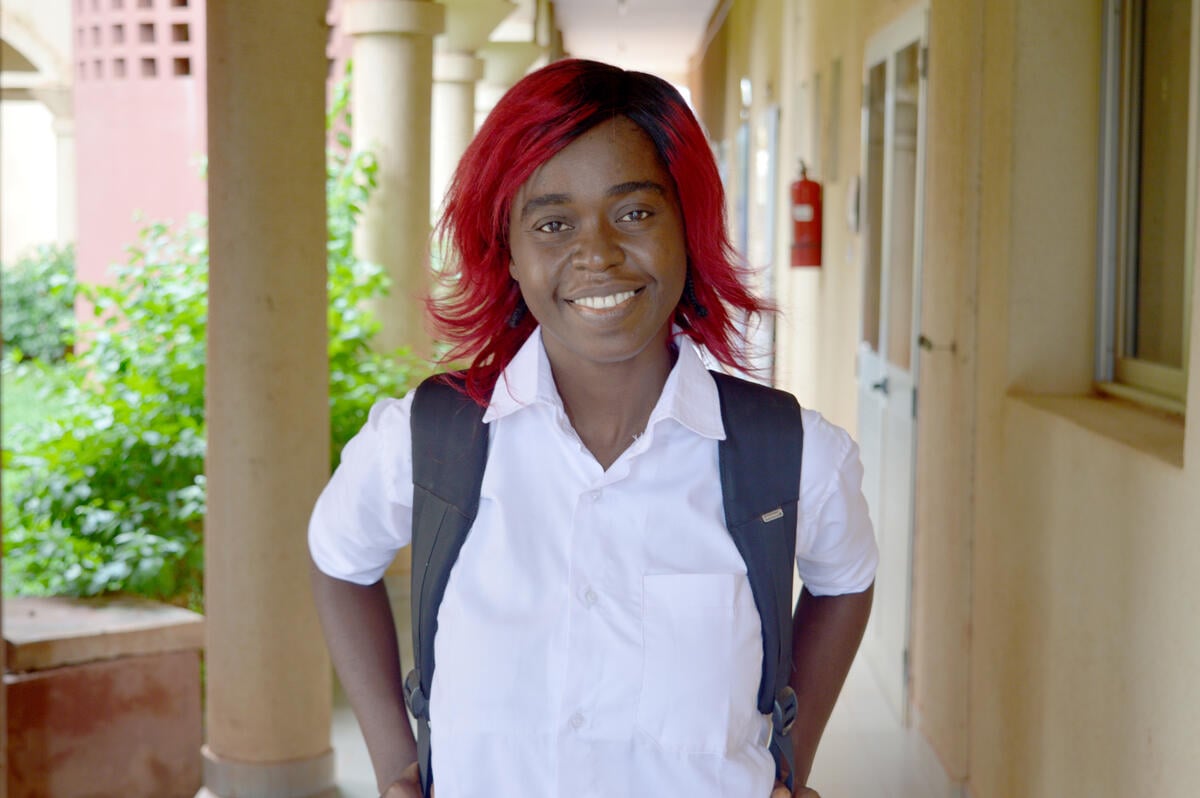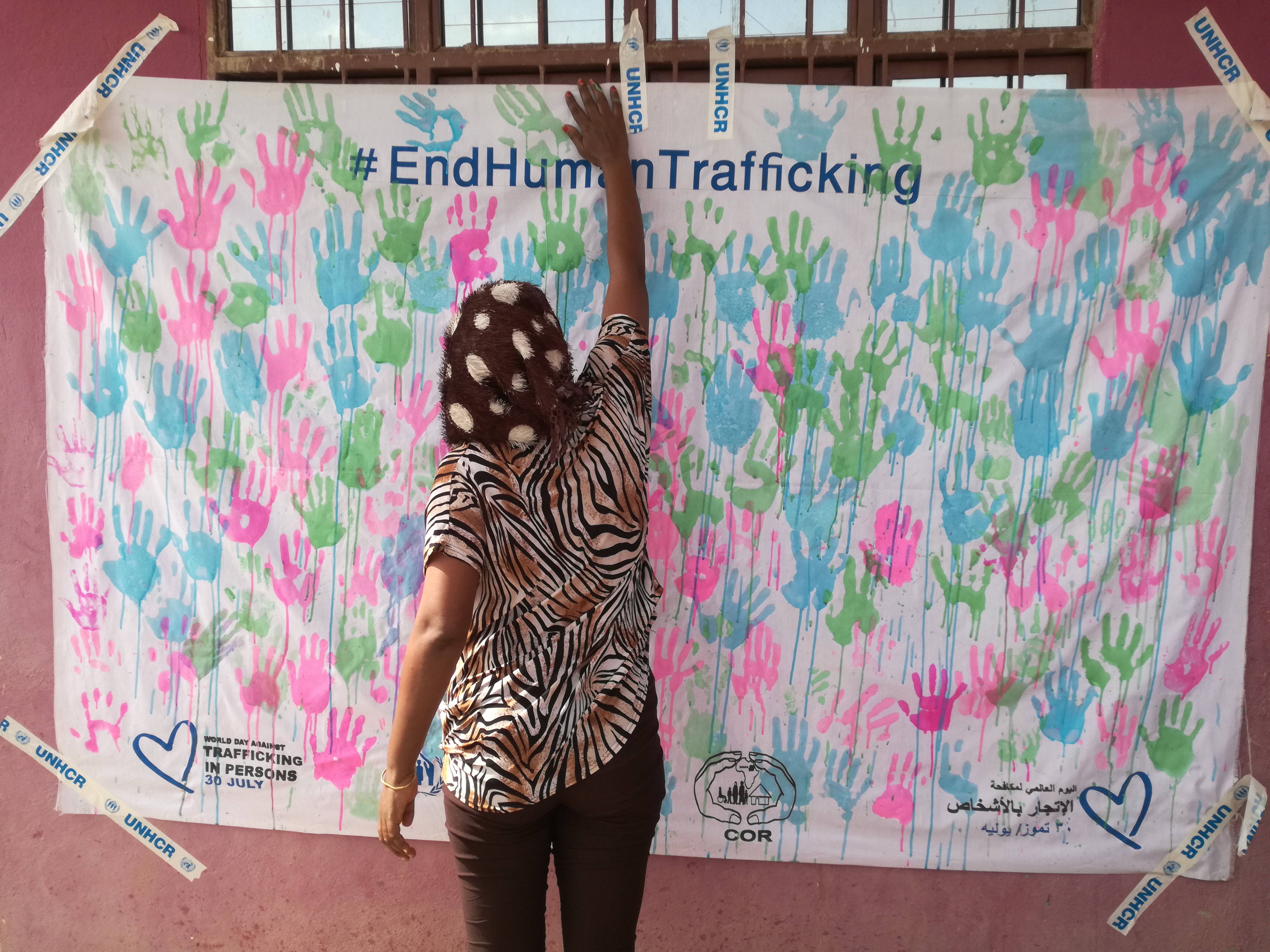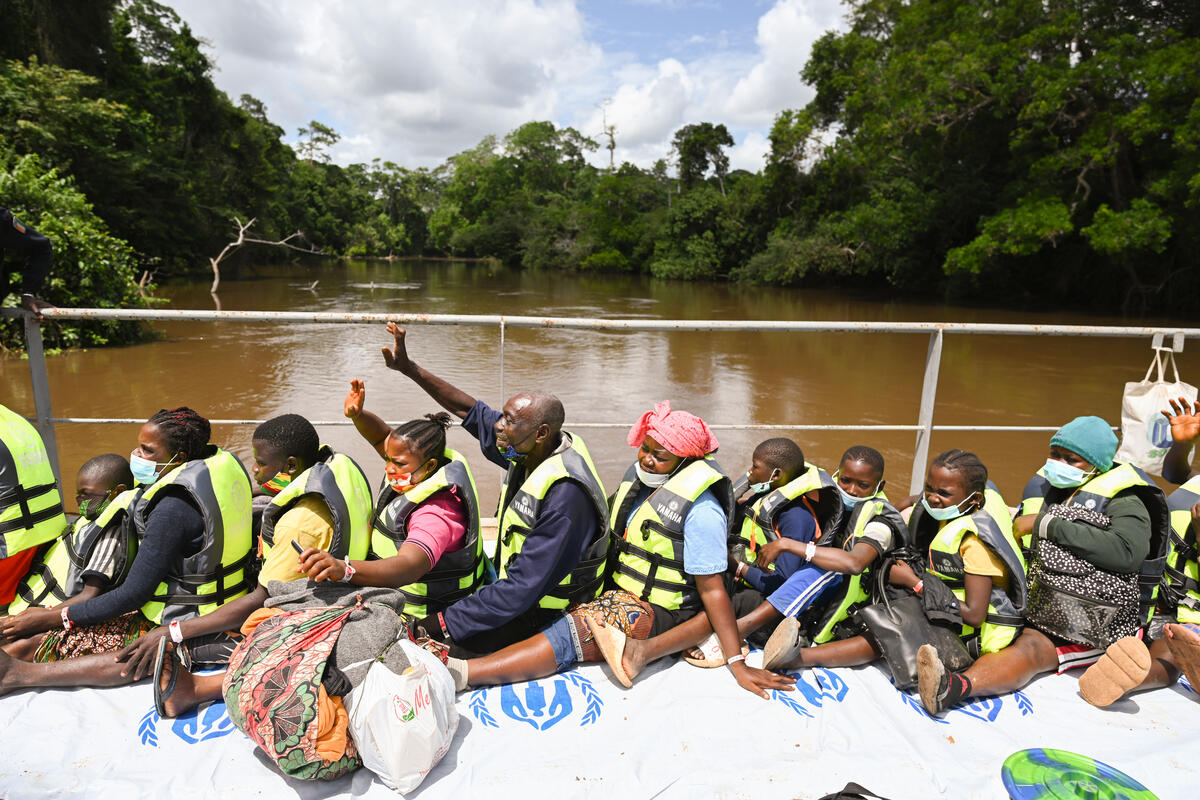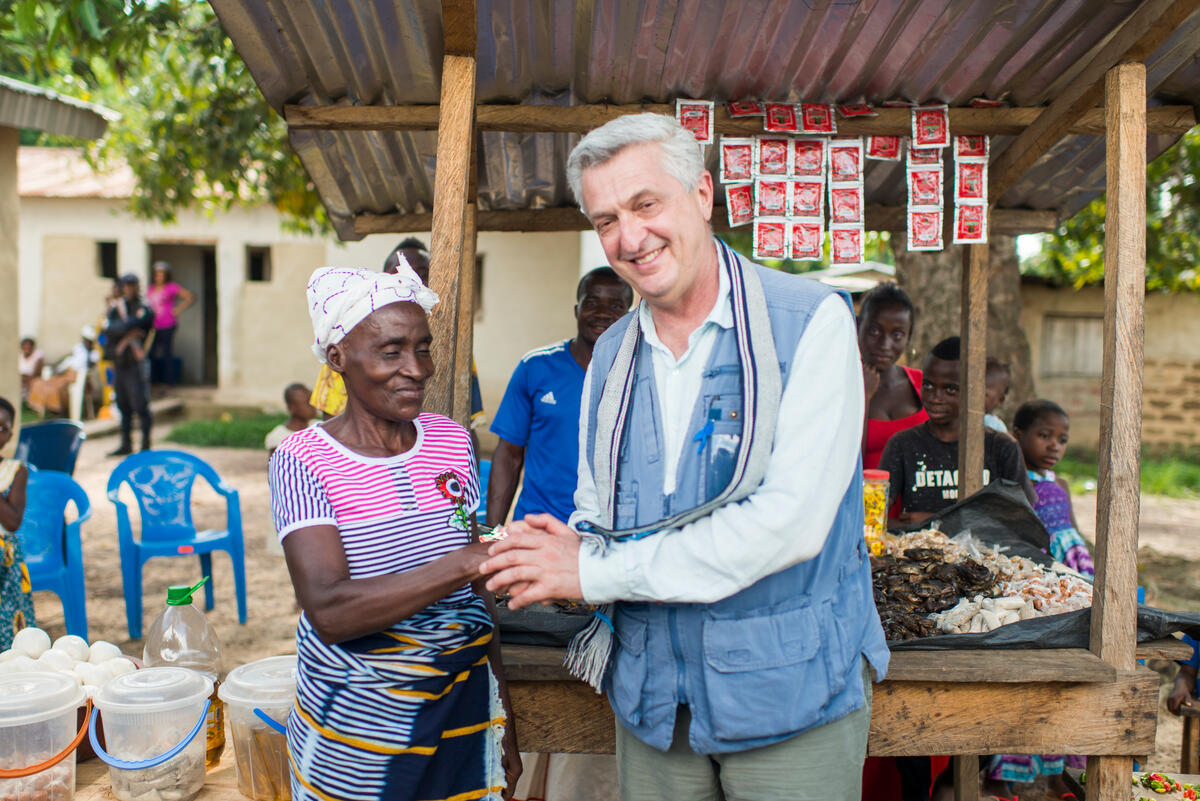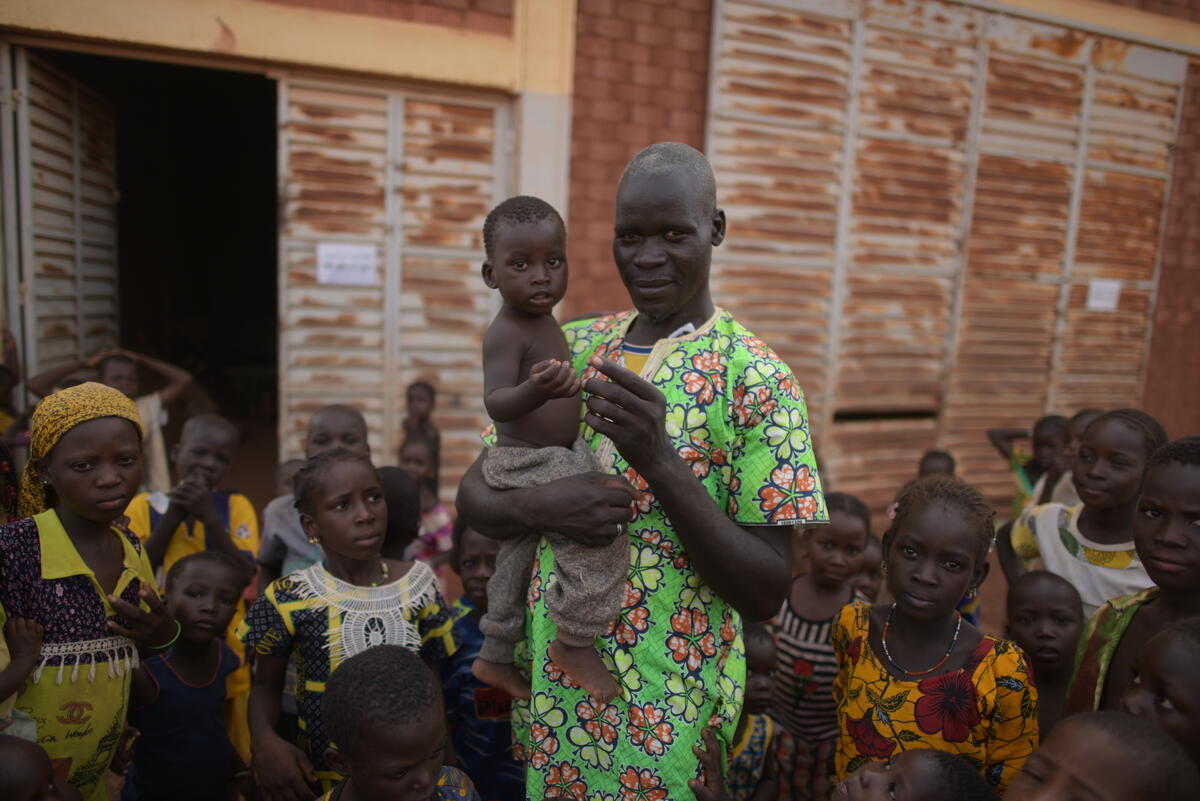UNHCR voices concern about refugee harassment in Abidjan
UNHCR voices concern about refugee harassment in Abidjan

ABIDJAN, Côte d'Ivoire, November 8 (UNHCR) - Responding to reports of refugee harassment in the Ivorian city of Abidjan, the UN refugee agency has found an alternative site for some of them while urging the government to help house the others. Meanwhile, 26 Sierra Leonean refugees have opted to go home amid the tense climate.
On Friday, UNHCR expressed concern about security incidents in and around makeshift sites for refugees in Abidjan. On several occasions, security forces entered the Koumassi factory site and carried out random identity checks. The checks made the refugees nervous, prompting some of them to go on a hunger strike to demand better safety conditions.
In a separate incident, the mayor of Koumassi district visited refugees at the "Ecole Alpha" site, complaining that he had not been informed about their presence and did not approve of it. This was despite the fact that all mayors of refugee-hosting districts had been duly informed of the displaced refugees' presence in their areas.
Displaced refugees hosted at the Marcony hotel site also reported harassment by aggressive local youths.
In response to the harassment reports, the UN refugee agency has rented an additional site to move some of the refugees to a safer place. A big villa with an adjacent plot of land to put up tents has now been rented in Abidjan's Atoba district. It can house more than 350 people.
Some 300 refugees from the Koumassi factory site will be moved there as soon as possible, while another 100 will live in houses beside the factory, which will be used to store non-food relief items.
UNHCR has repeatedly asked the Ivorian government to provide an alternative site for the refugees displaced in Abidjan to ease their plight and to cut the high rental cost. The refugee agency is presently housing 1,050 displaced refugees in seven centres around Abidjan, with rental costs totalling up to $10,000 per month - money that could have been spent on more urgent projects. So far, the government has not responded to the agency's request.
Amid the tense climate, 26 Sierra Leonean refugees in Abidjan flew home to Freetown by commercial flight on Friday. They are part of a group of about 50 Sierra Leonean refugees who were made homeless when their shantytown homes were razed in the wake of a September 19 attempted coup.
"I am glad I am gone. We were really scared there as the police came to check on us very often," said one of the returnees, Adama, before boarding her Ghana Airways flight. "I hope I will find my family in Kailahun. The last time I spoke to my sons was in Danané; we have heard nothing for the past three years. But I am sure I will find them soon."
Another returnee, Samuel, said, "When I get back to Sierra Leone, I just want to study again. I had finished my O-levels and was starting on my A-levels when the rebels came. I just want to learn more and make up for the time I have lost."
The 24-year-old added, "I don't know where my family is, but I will first go back to Kono. This is where my family came from originally and I am sure some people there will know where they are. After that I will try to live in Freetown and go back to school."
Côte d'Ivoire hosts another 500 Sierra Leonean refugees who are still living in the refugee-hosting area near the border with Liberia.
Meanwhile, UNHCR's office in Liberia is reporting that the number of Liberians returning from Côte d'Ivoire has increased since the beginning of the instability there. Liberian immigration authorities reported that close to 7,000 persons recently crossed the border into Nimba, Grand Gedeh and Maryland counties in the east of Liberia. The refugee agency is trying to establish how many of them were registered refugees in Côte d'Ivoire.
Among the arrivals were also about 40 Ivorians, 130 Ghanaians, one Burkinabe and one Malian.
While the majority of the returning Liberians are moving on to destinations in villages and towns, there are presently over 1,100 who are not able to return to their places of origin due to Liberia's own war situation and are beginning to congregate in local school buildings and other facilities.
Although UNHCR had pulled out of that area following the end of the latest repatriation movement in March 2000, we are now trying to organise some assistance with trucks, temporary accommodation, water and sanitation and health care. We will re-establish a more permanent presence in the region next week, with the re-opening of our former office in Harper, Maryland County, and a small antenna office in Karnplay, Nimba County.

